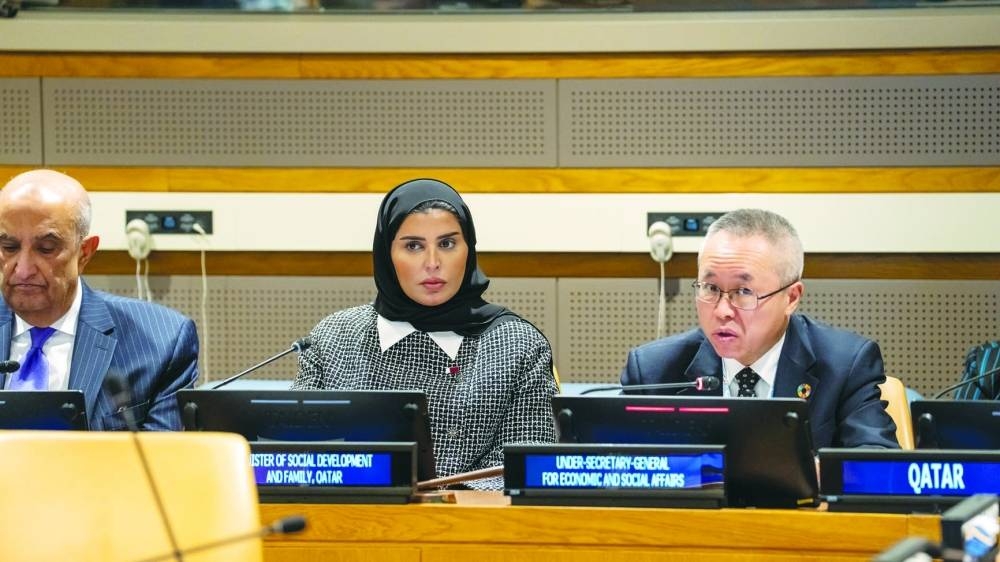Qatar chaired the high-level session organised by the Qatar's permanent delegation to the UN in co-ordination with the Arab League's permanent observer delegation to the UN, to enable persons with disabilities to overcome inequalities, in which HE the Minister of Social Development and Family Maryam bint Ali bin Nasser al-Misnad took part.
This session was held on Thursday on the occasion of the 61st UN Session of the Commission for Social Development at the organisation's headquarters in New York.
The session aims to form a unified Arab position and to introduce the efforts of the Arab group in the comprehensive recovery paths for disability from the coronavirus (Covid-19) pandemic, given that this issue is one of the pillars of the efforts of the specialised committees at the UN this year.
At the end of its work, the session recommended the need for concerted Arab efforts to achieve full social integration for people with disabilities, along with similar international efforts, by providing education and employment opportunities, as they are inherent human rights on the one hand, and ensuring that persons with disabilities can participate in full swing in the social and economic life of societies on the other hand.
The session discussed the individual and multilateral efforts of the member states of the Arab League, with UN agencies and offices and other international specialised organisations, in developing and implementing strategies that would enable persons with disabilities to overcome inequalities in the Arab region, and that also work to accelerate the recovery process from the pandemic and the full implementation of the 2030 Agenda for Sustainable Development.
The session reviewed the situation of persons with disabilities in the world, and the obstacles that prevent their participation in the social, economic and political fields, including decision-making processes that would improve their living conditions on the way towards the full implementation of the 2030 Sustainable Development Goals, by harnessing many tactics, especially the correct use of the advantages of technology and various innovations, in ensuring the rights and facilitating the lives of people with disabilities.
It also dealt with important developments related to the institutional and legal frameworks that protect the rights of persons with disabilities in the Arab countries, in light of the membership and ratification of most countries concerned with the International Convention on the Rights of Persons with Disabilities, including Qatar, in addition to reviewing new laws, strategies and policies to support persons with disabilities, establishing national co-ordination mechanisms concerned with disability, as well as defining employment quotas for persons with disabilities in the public and private sectors.
Participants in the session unanimously agreed on the praise and leadership achieved by Qatar, represented by the Ministry of Social Development and Family, for the disability file in the Arab and international context, which was embodied in two main pillars: the first in the classification of the FIFA World Cup Qatar 2022 as the most inclusive and facilitating version for persons with disabilities, and the second in announcing the country's readiness to host the 4th Global Disability Summit in 2028.
The participants also praised the Doha Declaration, which was adopted during Doha's hosting of the 42nd session of the Council of Arab Ministers of Social Affairs last January, pointing out that the Arab world is now at the forefront of international efforts in the areas of caring for persons with disabilities, in several fields, in addition to being the first region in the world to adopt this classification.

